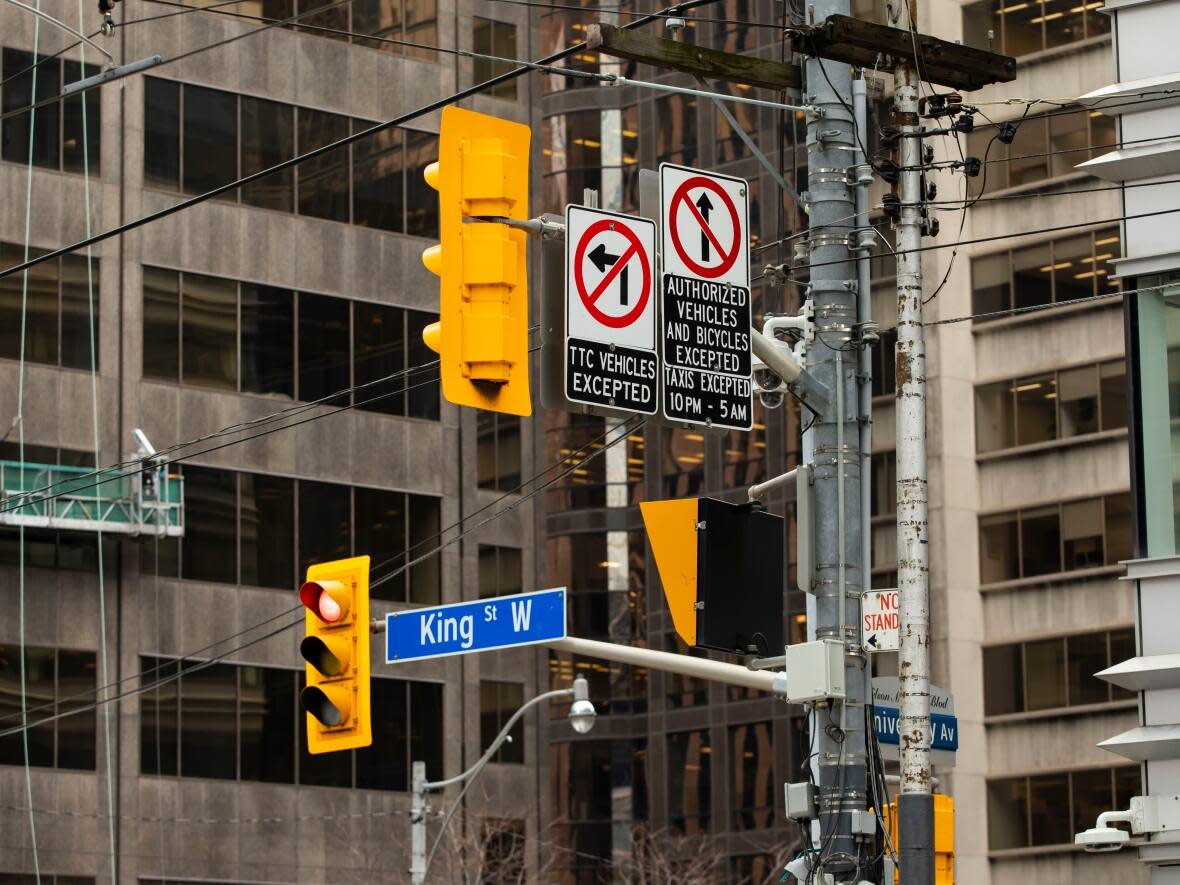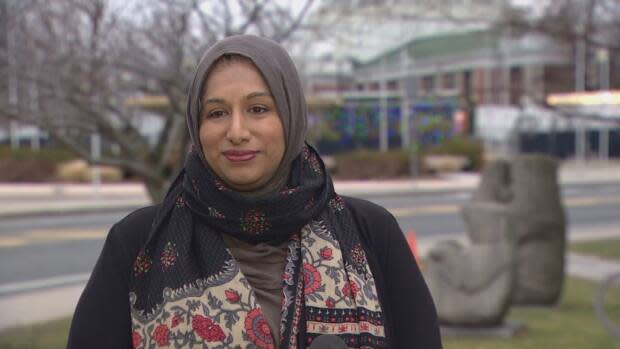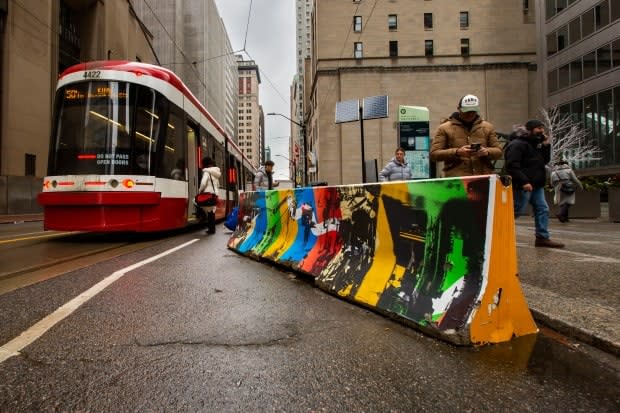What happened to the King Street transit corridor? Pundits say there's no enforcement of redesign

A Toronto city councillor and a public transit advocate say a stretch of King Street West should make streetcar traffic a priority again and the city should explain why the busy downtown corridor is now crawling with cars.
Ausma Malik, who represents Ward 10 Spadina–Fort York, said it's time to revisit the redesign of King Street West. According to the redesign, implemented in 2019, King Street was supposed to give priority to streetcars over private vehicles from Bathurst to Jarvis streets.
Malik said she is going to meet with the general manager of Toronto Transportation Services next week to discuss what is known as the King Street Transit Priority Corridor and why there is now a lack of maintenance of the redesign and a lack of enforcement of city rules on that stretch of the street.
"We have to make sure that in the city of Toronto we have fast, reliable and affordable ways of getting around the city by public transit. It's part of our climate leadership. It's what makes a really incredible downtown," Malik said on Friday.
"As a vocal supporter of the King Street Pilot and a daily transit user myself, it's very frustrating to see the lack of care, maintenance and enforcement on King Street, especially when community and advocates worked so hard to ensure that it succeeded. We have to do better."
Vincent Puhakka, a member of the transit advocacy group TTCriders, is also wondering what happened to the transit priority corridor, saying it is a shell of what it once was or could have been.
In April 2019, city council voted for the redesign of King Street. Private vehicles, while not banned, were supposed to be restricted at a majority of intersections. The vote followed a pilot project in 2017 that prioritized streetcar traffic along the route.
At the time, former city councillor Joe Cressy said: "We have a real opportunity in 2023 when King Street has its track repair done to create a brand new destination street for the 21st century."

Malik said she thinks the transit priority corridor is no longer a priority for the city, in part because of the pressures put on Toronto from the COVID-19 pandemic. But she said there was much public education that made it an initial success, the city could learn from the redesign and it could apply it other transit corridors.
"What we have to do is to be able to get back to some of those core principles that made it one of the most dependable routes to be able to get across the downtown," she said. "We can get back to that."
Puhakka, for his part, said on Friday that being on King Street now feels like being on Queen Street. He said King Street was supposed to be the "showcase" of what transit could be.
He said when King Street is humming at night, particularly near Bathurst Street, the Ubers get in the way.
"This was supposed to be the solution to this problem. And without enforcement and without the transit priority lane being as an actual transit priority, well, what good is it? That's the problem we're seeing right now," he said.

Puhakka called on the Toronto police and the city to do their part. The police and city have not yet responded to a request for comment.
Police need to enforce the rules of transit priority corridor, which involve enforcing the rule that cars have to turn right at intersections, and the city needs to invest in new streetcar stops that were promised as part of streetscape improvements along King Street, he said.
As well, the TTC needs to ensure that there continues to be enough streetcars on the route.
"It is relatively easy to fix," Puhakka said. "If anyone is listening here who is a decision-maker, this is an easy quick win. Torontonians need a quick win. It's been a hard two years. Give it to us."


